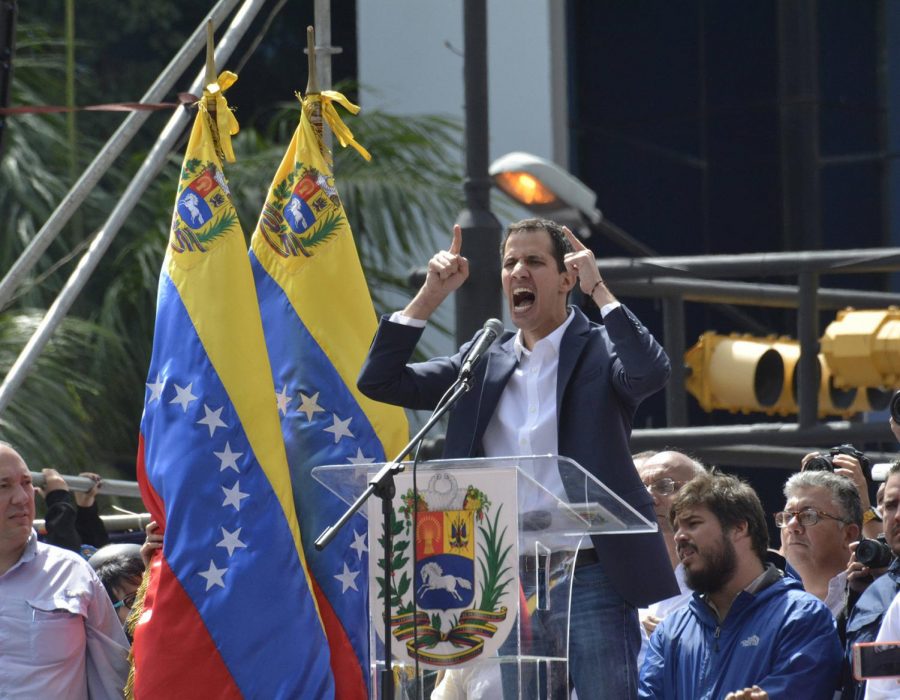Socialism causes economic peril
Opinion Columnist Colin Horning discusses the swearing-in of the new interim president of Venezuela, Juan Guaidó, and the socialist regime which led to the country’s ultimate economic downfall.
Jan 28, 2019
This past Wednesday, the United States and President Trump formally recognized Venezuelan National Assembly Leader (the Venezuelan equivalent to U.S. Congress) Juan Guaidó as the interim President of Venezuela, stating that the previous election of President Nicolas Maduro was a sham.
Guaidó took an oath of office in front of thousands of Venezuelan supporters and citizens who have suffered economic horrors under the socialist regime of Maduro (and Hugo Chavez prior to that). It would certainly make sense for Venezuela to have a booming economy, being that the nation sits on over 300 billion barrels of proven oil reserves. That amount comes out to be about as much as the U.S. and Saudi Arabia combined.
They did have a booming economy at one point. From the 1950s through about 1982, Venezuela was consistently one of the world’s top-five richest nations in terms of GDP per capita.
A drop in global oil prices sent Venezuela into a short-term economic crisis in the ’80s and ’90s. This led to the election of the country’s populist revolutionary leader, Hugo Chavez, in 1998. While Chavez was in office, he took numerous actions which transformed the once thriving economic power into a socialist regime. He took over the largest oil firm in Venezuela and fired thousands of workers when they went on strike, effectively setting up the economy for ruin down the road once his vice president, Maduro, took office. Since Chavez had instituted massive welfare and government programs, but no longer had the money to pay for them due to the tanking economy, Maduro had decided to print more money in order to pay off the government’s debts. This predictably led to the world’s highest inflation rate in the year 2019.
Venezuela is an example of how socialist policies can quickly ruin a once-prosperous nation. Today, the people of Venezuela in most instances have to wait in line for hours just to get a loaf of bread. The average citizen of Venezuela has lost around 19 pounds since 2015 simply because of food shortages (sometimes referred to as the “Maduro diet.”) Basic necessities, such as groceries and toilet paper, are in extremely high demand but have incredibly low supply. A simple Google search of “Venezuelan grocery store” will come up with results looking like a scene from a zombie apocalypse movie.
The cause for this is that there is simply too much government intervention in free markets. In Venezuela, the government controls most of the means of production and sets the market price on most items, along with forcing big businesses to pay significantly higher tax rates in order to pay for government programs. When many of the top businessmen and corporations in Venezuela were forced to pay these high tax rates, they simply left the country altogether, along with the jobs, wealth and industry goods that they used to provide the nation with. This leads the labor force to either work while on government assistance or simply not work at all, and in turn, means that the government cannot sustain what they are promising their citizens. After all, the main source of income for a government comes from taxation, specifically income tax, which becomes incredibly hard to do when people aren’t working in the first place and have no more opportunity to find work.
Venezuela is an example of how unchecked government control can, and will, ultimately lead to economic despair. The idea of everyone existing on an equal playing field in every aspect of life can sound good and tempting, but it ensures everyone will be equally miserable in the end. Socialism works in the very early stages, however, it starts to fail when the federal government runs out of other people’s money.



















